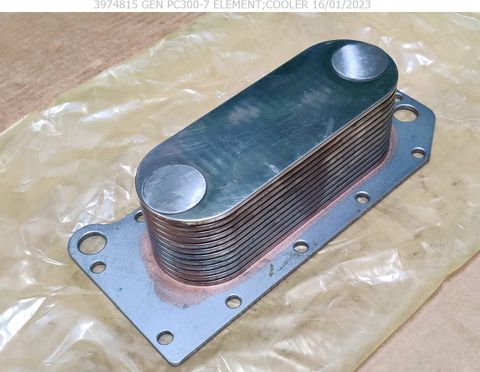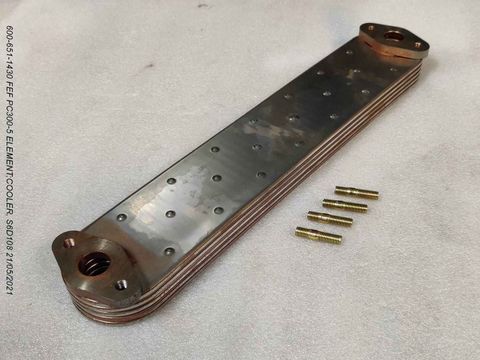Oil Cooler Element
価格:
R.F.Q
Share Product:
詳細
A cracked oil cooler element can lead to several problems that affect the performance, reliability, and safety of the vehicle. The oil cooler is a component of the engine's lubrication system responsible for cooling the engine oil to maintain optimal operating temperatures. Here are some potential problems that can arise from a cracked oil cooler element:
Oil Leakage: One of the most immediate issues associated with a cracked oil cooler element is oil leakage. Engine oil flows through the oil cooler to dissipate heat, and if the cooler element is cracked, oil can leak out. Oil leakage can lead to a loss of lubrication in the engine, causing increased friction and wear on internal components. Additionally, oil leakage can create a mess under the vehicle and pose a safety hazard if oil drips onto hot engine components or the road surface.
Engine Overheating: A cracked oil cooler element can result in engine overheating. The oil cooler helps regulate the temperature of the engine oil by transferring heat away from the oil to the surrounding air or coolant. If the cooler element is cracked and unable to effectively cool the oil, the engine may run hotter than normal, leading to overheating. Engine overheating can cause damage to internal engine components, such as seals, gaskets, and bearings, and may result in engine failure if not addressed promptly.
Coolant Contamination: In vehicles equipped with liquid-cooled oil coolers, a cracked oil cooler element can lead to coolant contamination. If the oil cooler is integrated into the engine's cooling system, a crack in the cooler element can allow engine oil to mix with coolant. Coolant contamination can lead to degraded cooling system performance, corrosion of cooling system components, and potential damage to the engine's internal components.
Oil Contamination: A cracked oil cooler element can also result in oil contamination. If the cooler element is cracked, coolant or external debris may enter the oil passages, contaminating the engine oil. Oil contamination can lead to reduced lubrication effectiveness, increased engine wear, and potential damage to engine components. Contaminated oil can also impair the performance of hydraulic systems, such as variable valve timing (VVT) or hydraulic lifters, leading to drivability issues and decreased engine efficiency.
Loss of Engine Oil: Oil leakage from a cracked oil cooler element can result in a loss of engine oil. Low oil levels can lead to insufficient lubrication of engine components, increased friction and wear, and potential engine damage or failure if not addressed promptly. Additionally, low oil levels can cause the engine to run hotter, leading to decreased fuel efficiency and increased emissions.
In summary, a cracked oil cooler element can lead to oil leakage, engine overheating, coolant contamination, oil contamination, loss of engine oil, and potential engine damage or failure. Prompt detection and repair or replacement of a cracked oil cooler element are essential to ensure the reliable and safe operation of the vehicle. Regular inspection and maintenance of the engine's lubrication and cooling systems can help prevent issues and prolong the life of the engine.
仕様書
| キーワード | |
| ブランド | |
| 起源 | MY |

